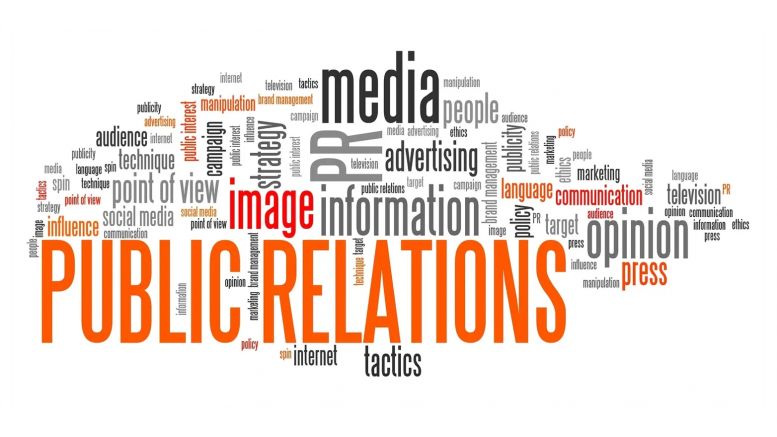Twice in my career, I left organisations due to toxic environments I could no longer tolerate. One company withheld salaries for months, and any resistance was met with severe consequences. The second company, where I stayed for a long tenure, provided outstanding learning opportunities and was led by impressive business-minded leaders, yet empathy was profoundly lacking—a fact I fully grasped only after I left. The relentless, 24/7 demands and constant pressure took a heavy toll on my mental health. I often wonder if I should have spoken up, but at the time, I neither had the courage nor the mental bandwidth to confront it. I was simply ready to move on.
Yet, when organisations falter, it’s typically the PR team that faces the brunt. Why should a single team shoulder that burden when a company is managed by multiple departments? PR managers are primarily tasked with communication, so why is there such an expectation for us to be the moral compass? It’s a question I believe every PR professional has wrestled with. I remember an incident when my first manager let go of a client due to his unacceptable treatment of our team. It showed me that every voice has the power to make workplaces better. Today, I realise that I would rather be that voice than stay silent.
In today’s hyper-connected world, organisations operate under intense public scrutiny. Stakeholders—ranging from customers to investors—now demand accountability, integrity, and ethical behavior from the businesses they support. For organisations, this means that beyond merely achieving profit, they must earn public trust. In this context, PR professionals are positioned at a unique intersection of communication, influence, and strategy, which grants them the potential to be the ethical compass of their organisations. However, this role requires a clear definition, as it poses significant challenges and responsibilities for PR practitioners.
Historically, the primary objective of PR has been to maintain a favorable image. However, today’s PR professionals are responsible for communicating an organization’s values, guiding public perception, and cultivating trust.
As they align communication with broader business strategies, PR professionals play a critical role in building the ethical narrative of the organization. This evolution has led to the question of whether PR professionals should take on the responsibility of being the conscience keepers, encouraging moral decision-making at all organisational levels.
Ethical Responsibility: Do PR Professionals Owe It to Society?
PR professionals are increasingly expected to balance organisational objectives with societal interests, acting as intermediaries who promote transparency between the organisation and the public. Their ethical responsibilities are multifaceted and rooted in the need to consider and advocate for the interests of all stakeholders, ensuring decisions that benefit society and build trust. A core aspect of this role is transparency and accountability; PR professionals are responsible for maintaining honest, clear communication that holds the organisation accountable for its actions. Another critical responsibility lies in ethical storytelling, where PR professionals shape narratives that truthfully represent the organisation’s values and mission, resisting any urge to exaggerate or mislead. This commitment aligns with the PR Code of Ethics, endorsed by organisations like the Public Relations Society of America, which emphasises integrity as a guiding principle, extending beyond mere compliance to foster genuine ethical practices.
Where is the Autonomy?
While PR professionals are well-positioned to promote ethical behavior, they encounter several notable challenges in this role. One primary challenge is organisational resistance; PR professionals typically report to higher executives who prioritise profit over ethics, which can restrict the scope of PR’s influence on ethical decision-making. Additionally, PR professionals often face conflicts of interest, as they must balance the organisation’s profit motives with public interest. This dual allegiance can create internal conflict, making it difficult for PR practitioners to maintain objectivity while championing morally sound choices.
Another limitation is the lack of autonomy. PR professionals are frequently bound by organisational policies that do not always prioritise ethical considerations, reducing their ability to advocate for change or influence decisions made at higher levels.
Despite these constraints, PR professionals who persistently promote ethical practices can still play a meaningful role in enhancing organisational integrity, even if their influence on decision-making is limited by structural and policy-driven restrictions.
The evolving expectations placed on organisations necessitate that PR professionals step into the role of ethical advocates, balancing business interests with societal impact. While challenges exist, PR and Communications Managers can implement strategies that enhance ethical behavior and build trust. When PR professionals act as the moral compass of their organisations, they not only uphold ethical standards but also strengthen the organisation’s reputation, demonstrating that ethical conduct is a foundation of sustainable success. As society increasingly demands responsibility and transparency, the PR profession has a unique opportunity to influence the moral direction of organisations. The question, therefore, is not only whether PR professionals should be the conscience keepers but whether they can afford not to be in an era where integrity is synonymous with success.
The views and opinions published here belong to the author and do not necessarily reflect the views and opinions of the publisher.



Be the first to comment on "Should PR professionals be the conscience bearers of an organisation?"